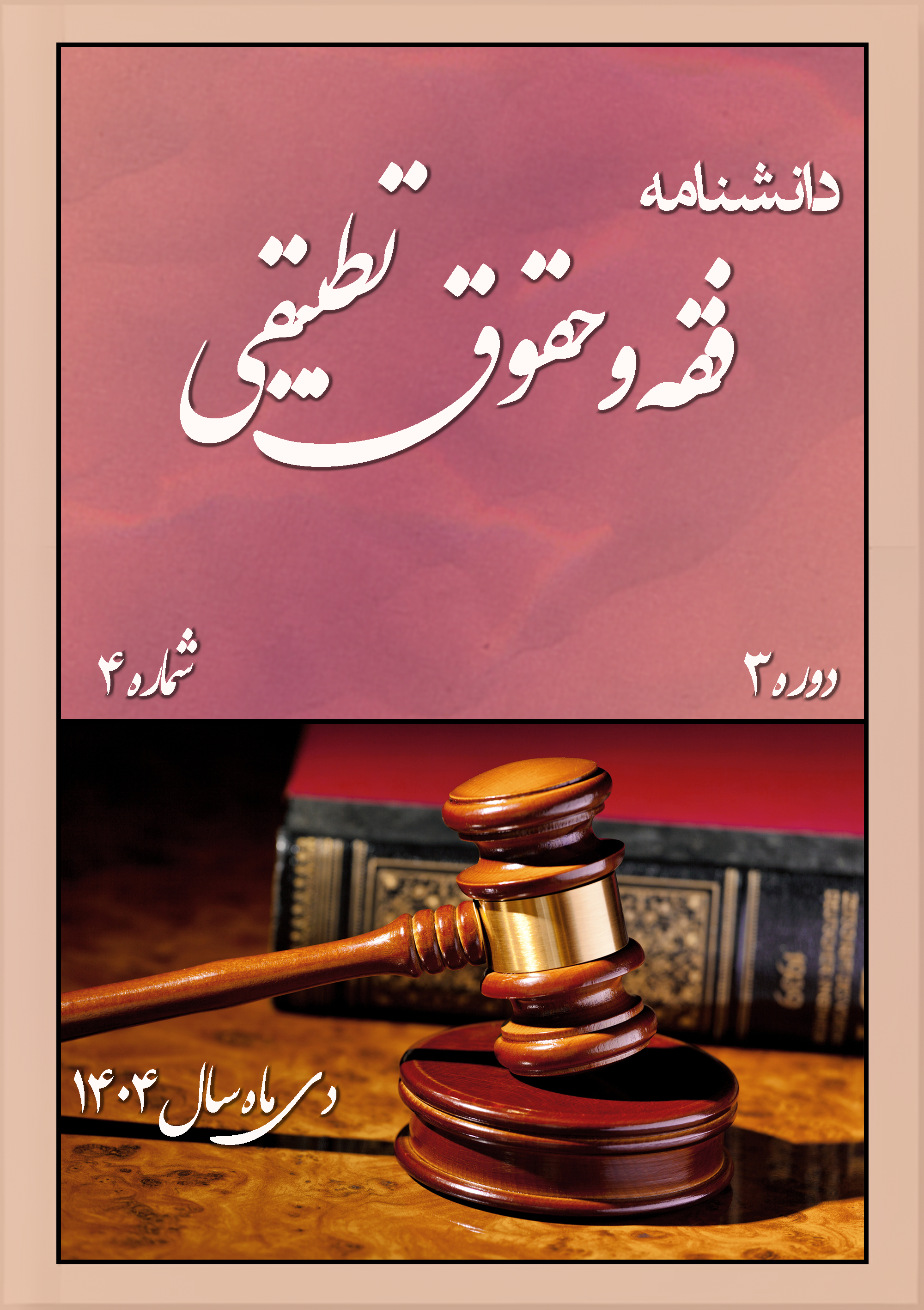The Position of Justice in Good Governance: A Case Study of the Islamic Republic of Iran
Keywords:
Good governance, Constitution, Justice, Islamic RepublicAbstract
Good governance is a modern model of governance grounded in human rights concerns and characterized by respect for democracy, transparency, the prevention of administrative corruption, and the promotion of public participation. One of the salient components of good governance is a focus on justice, which is rooted in the foundations of human dignity. The present study examines the concept of justice-seeking as a shared feature among new models of good governance, Islamic governance, and the political model of the Islamic Republic. Information was gathered through online and library sources. The study employs an analytical-explanatory method to advance its argument. Throughout the research process, it became evident that although justice was often ignored in practice in traditional systems of rule, even unjust governments typically recognized the theoretical importance of justice. As new and ideal models of governance have emerged, it can be argued that the Islamic Republic, as a system derived from Islamic sacred law and committed to justice, represents one of the paradigms of good governance. Its primary distinction from other models of good governance lies in its Islamic nature, which is based on Quranic justice and the governance model of Imam Ali.
Downloads
References
Akhwan Kazemi, B. (2002). Justice in the Islamic political system. Islamic Culture and Thought Research Institute.
Emami, M., & Shakeri, H. (2017). A brief overview of good governance and human rights. Human Rights Quarterly, 12(1), 23.
Faghfoori, H. (2010). Investigating the obstacles and problems of implementing effective internal controls in executive bodies Islamic Azad University, Science and Research Branch]. Tehran.
Ghosh, R. N. (1999). Good governance issues and sustainable development: The Indian Ocean region. Atlantic Publishers & Dist.
Hadavand, M. (2005). Good governance, development and human rights. Fundamental Rights Journal(40).
Hedavand, M. (2017). An introduction to the general theory of administrative act reparability. Public Law Studies Quarterly, 18(54).
Hedavand, M., & Sarzaeem, A. (2016). Realizing the role of government in the economy. Legal Information Quarterly(19).
Kamali, Y. (2009). What is good governance? Tadbir Monthly(206).
Kaul, J. L., & Sinha, M. K. (2008). Human Rights and Good Governance: National and International Perspectives. Satyam Law International.
Mohseni, F., & Farajpour Asl Marandi, A. A. (2012). The principle of the rule of law in Iran's judicial system. Islamic Government Quarterly, 18(2), 68.
Pourezzat, A. D. (2010). The coordinates of Haqmadar's rule in the light of Imam Ali's Nahj al-Balagha. Scientific and Cultural.
Rose, J. (2004). The rule of law in the western world: An overview. Journal of Social Philosophy, 35(4). https://doi.org/10.1111/j.1467-9833.2004.00245.x
Sameti, M., Ranjbar, H., & Mohseni, F. (2011). Analyzing the impact of good governance indicators on the Human Development Index: A case study of Southeast Asian countries. Growth and Economic Development Research Quarterly, 1(4).
Sardarnaba, K. (2016). Governance in Iran; pathology and presentation of strategies. Strategic Development Quarterly(49).
Shaari, P., & Azinfar, K. (2007). Accounting information systems and internal controls. Accounting Monthly(184).
Singh, B. (2007). The Talibanization of Southeast Asia: Losing the war on terror to Islamist extremists. Greenwood Publishing Group. https://doi.org/10.5040/9798216022329
Vizheh, M. R. (2011). Oversight by constitutional protection authorities in ensuring legislative transparency. Legal Studies Journal, 10(19).
Yazdani Zenouz, H. (2009). Examining the role of transparency in achieving good governance. Journal of Public Law(5).
Zarei, M. H. (2004). Good governance, sovereignty, and government in Iran. Legal Research Quarterly(40).
Zayandeh Roudi, M. (2017). Investigating the impact of good governance indicators on income distribution using panel data (case study: selected countries in Southwest Asia). Economic Research Quarterly, 17(3).
Downloads
Published
Submitted
Revised
Accepted
Issue
Section
License
Copyright (c) 2025 محمد مدیرروستا (نویسنده); فرامرز عطریان; علیرضا انصاری مهیاری (نویسنده)

This work is licensed under a Creative Commons Attribution-NonCommercial 4.0 International License.










